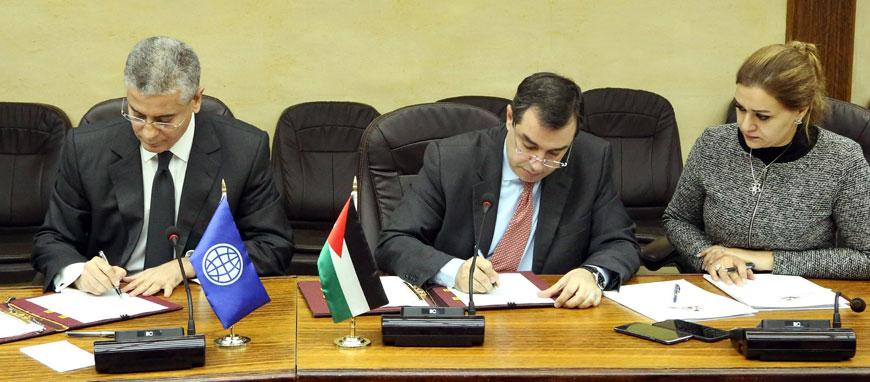You are here
World Bank approves $250 million loan to support Jordan’s energy, water sectors
By JT - Sep 20,2015 - Last updated at Sep 20,2015
AMMAN — The World Bank board of directors approved Friday a $250 million financial package to support Jordan’s process to reform the energy and water sectors.
In a statement posted on its website, the bank described the sectors as “critical public services that are challenged by scarce resources and further burdened by a sharp rise in demand caused by the influx of Syrian refugees”.
The policy programme financed by the Development Policy Loan (DPL) will include a gradual reform of electricity and water subsidies; diversification of fuel sources for environmentally friendly and sustainable power generation; increasing efficiency in the energy and water sectors; and optimising water use, said the statement.
The DPL is aligned with the medium-term objectives of the government’s own “Jordan 2025: A National Vision and Strategy”, which seeks to achieve financial and environmental sustainability, enhanced productivity and increased competitiveness in 10 years.
“We are pleased to continue supporting the government of Jordan in implementing its ambitious and far-reaching reform programmes which aim to bolster the country’s broad development agendas,” said Ferid Belhaj, World Bank Director for the Middle East, who added that the implementation of the programme would lead to significant gains in efficiency for the water and electricity sectors.
Jordan’s historic vulnerability to fluctuations in fuel prices, coupled with the frequent interruptions in piped natural gas from Egypt since the outbreak of the Arab upheaval in 2011, have severely taxed the budget. To compensate for the gas shortages, Jordan has resorted to importing more expensive diesel and fuel oil, the bank said, adding the development encouraged Jordan to develop and implement programmes to diversify and reduce cost of energy supply through the development of domestic renewable energy resources and alternate natural gas supply options for power generation.
“Jordan has made significant progress in developing new renewable energy private sector projects and is on track to reach its target of 10 per cent of renewable energy in the overall energy mix by 2020,” said Husam Beides, World Bank programme leader for sustainable development.
The new liquefied natural gas terminal in the Aqaba, which became operational in July 2015, will enable Jordan to restore the share of the natural gas supply for power generation to 70 per cent or more, reducing therefore Jordan’s dependency on more expensive and polluting diesel and heavy fuel oil imports, said the statement.
On the water front, the World Bank noted that a series of external shocks, including fluctuations in oil prices and the influx of the Syrian refugees in the country, have rapidly increased the cost of water.
In response, the government is implementing a sector-reform programme that aims to optimise the allocation of water resources, while reducing the use of energy in the sector.
“The water sector is on track to start generating energy efficiency savings that will help reduce the fiscal and environmental footprints of the sector,” said Caroline van den Berg, World Bank lead water and sanitation Specialist.
In addition to the new $250 million loan, the World Bank’s portfolio in Jordan comprises three projects amounting to $430 million, as well as 15 trust fund grants for a total of $83.4 million, said the statement.
Related Articles
AMMAN — The World Bank Group’s Board of Executive Directors has approved a $1.45 billion financing package to Jordan, aimed at stimulating i
AMMAN — Jordan on Sunday signed a $250 million soft loan with the World Bank to enhance reforms in the energy and water sectors.The loan's p
Jordan and the World Bank Group (WBG) have concluded a $250 million loan agreement aimed to help alleviate the Kingdom’s fiscal strains and enhance its economic growth.
















